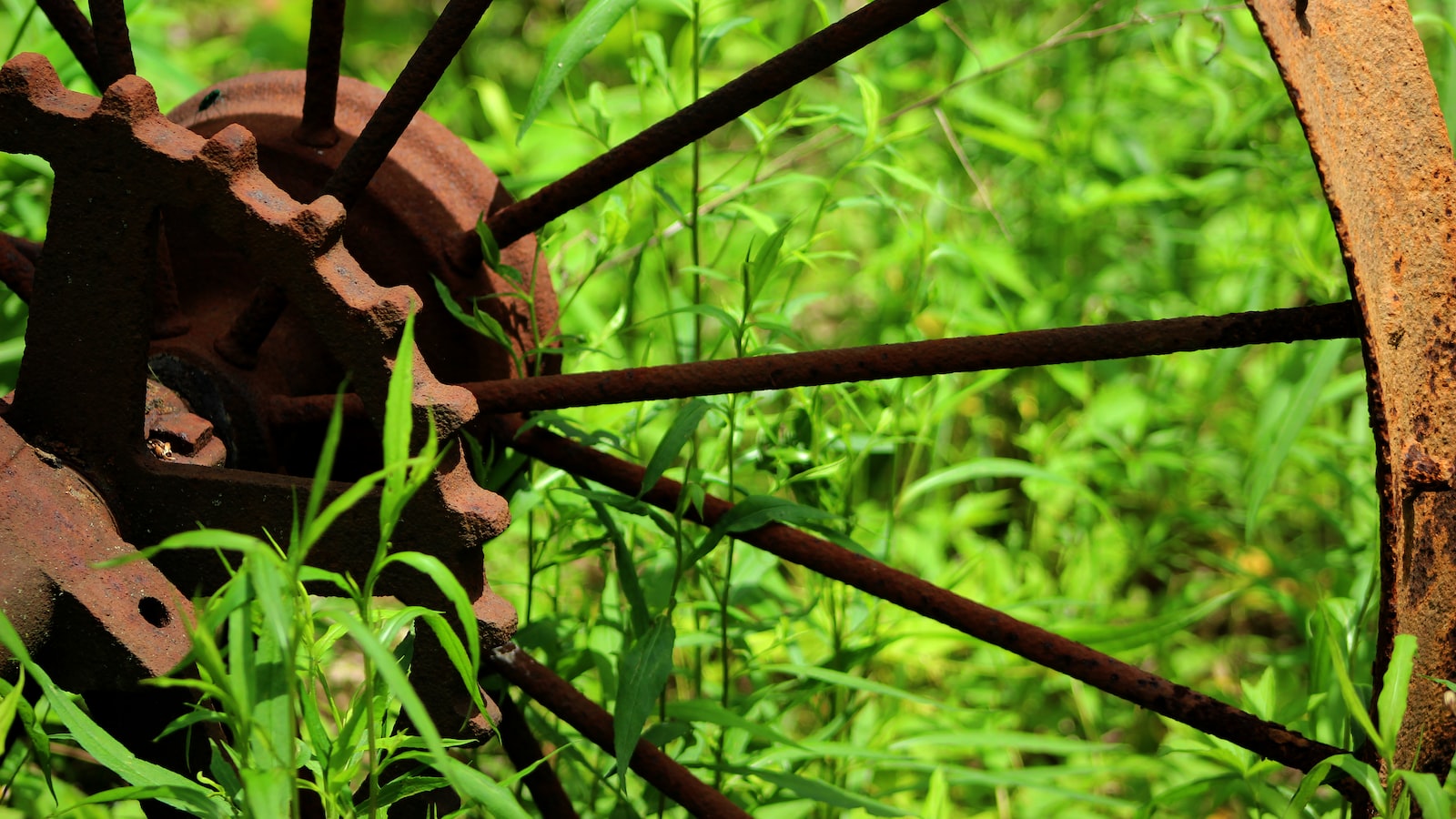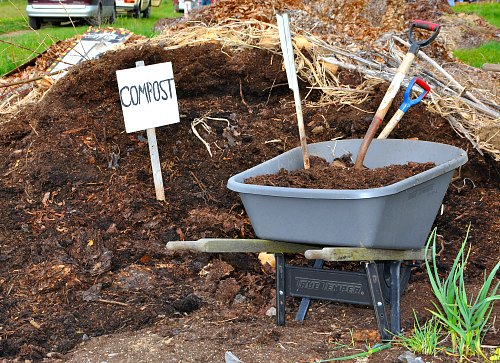Unleashing nature’s potent alchemy upon our gardens is a thing of beauty. However, when the delicate balance between soil health and the ever-fertile realm of manure becomes a tad lopsided, our flourishing oasis risks drowning in a funky odeur. It’s a veritable equilibristic act, my fellow green thumbs, for as we know, too much of a good thing can often result in unforeseen ripples. Fear not, for today we shall embark on an intriguing journey to unravel the mysteries of neutralizing an excess of manure in our beloved garden beds. Join me as we delve into a tale of harmony, science, and the gentle art of keeping our botanical haven as enchanting as ever.
Neutralizing Excessive Manure in Your Garden: A Guide to Restoring Balance
Excess manure in your garden can disrupt the delicate balance of nutrients in your soil, leading to poor plant growth and potential environmental issues. Don’t despair though, as there are several effective ways to neutralize excessive manure and restore harmony to your garden. Here’s a comprehensive guide to help you get started on this balancing act.
Firstly, it’s essential to properly compost your manure before using it in your garden. This process not only reduces the risk of nutrient overload but also helps eliminate any unpleasant odors. Create a designated composting area, ensuring a good ratio of nitrogen-rich manure to carbon-rich materials, such as leaves and straw. Turn the compost regularly to facilitate decomposition, and within a few months, you’ll have rich, balanced compost ready to be spread on your garden beds.
Secondly, consider adjusting the pH levels of your soil to counteract the effects of excessive manure. A simple soil test can determine whether your soil is too acidic or alkaline. To raise the pH of acidic soil, incorporate lime or wood ash into the garden bed. Conversely, if your soil is too alkaline, you can lower the pH by adding organic matter like peat moss or composted pine needles. Maintaining a neutral pH will ensure optimal nutrient absorption for your plants.
In order to better illustrate these tips, here’s a table outlining some essential features and techniques for neutralizing excessive manure in your garden:
| Feature | Tip |
|---|---|
| Composting | Ensure a balanced ratio of manure to carbon-rich materials for efficient decomposition. |
| Soil Testing | Determine your soil’s pH levels to make necessary adjustments. |
| pH Adjustment | Add lime or wood ash for acidic soil and organic matter for alkaline soil. |
By following these techniques and suggestions, you can neutralize excessive manure in your garden and restore balance to your soil. Remember, moderation is key, and with a little patience and effort, your garden will flourish once more – all while minimizing any negative impacts on the environment.

Examining the Effects of Too Much Manure: Understanding the Consequences for Your Plants
When it comes to using manure in your garden, it’s important to find the right balance. While manure is a valuable source of nutrients for your plants, using too much can have negative effects on your garden. Understanding the consequences of too much manure is crucial in maintaining a healthy and thriving garden.
One of the main consequences of too much manure is nutrient overload. Manure is rich in nitrogen, phosphorus, and potassium, which are essential for plant growth. However, when too much manure is applied, these nutrients can become excessive, leading to imbalances in the soil. This can result in stunted growth, yellowing leaves, and even the death of your plants.
| Features | Tips |
|---|---|
| Adequate composting: | Ensure that the manure has been properly composted before using it in your garden. Composting helps break down the manure and reduces its nutrient concentration, making it safer for plants. |
| Soil testing: | Regularly test the pH and nutrient levels of your soil to determine if excess manure has caused any imbalances. Adjust your fertilization practices accordingly to restore the optimal growing conditions for your plants. |
| Proper application: | Follow recommended guidelines for applying manure to your garden. Avoid concentrated applications and opt for more evenly distributed composting or incorporation methods. |

Practical Methods to Restore Soil Health and Minimize the Impact of Excessive Manure
When it comes to maintaining a healthy garden, finding a balance between enriching the soil and avoiding the negative consequences of excessive manure is crucial. If you find yourself in a situation where you have too much manure in your garden, fear not! There are practical methods you can employ to restore soil health and minimize its impact.
1. Composting: Utilize the power of composting to naturally break down excess manure. Combine the manure with other organic materials such as yard waste, leaves, and straw in a compost bin. Turn the mixture regularly to aid in the decomposition process and ensure all the nutrients are evenly distributed. The resulting compost can then be used to replenish the soil in your garden, providing it with a much-needed boost.
| Tips | Features |
|---|---|
| Regularly turn the compost to expedite decomposition. | Creates nutrient-rich compost for soil amendment. |
| Avoid adding fresh manure directly to your garden soil. | Prevents nutrient overload and potential harm to plants. |
| Layer manure with dry materials like straw to balance moisture levels. | Prevents excessive moisture and unpleasant odors. |
2. Crop Rotation: Another effective method to mitigate the impact of excessive manure is by practicing crop rotation. Manure is an excellent source of nutrients, but over-application can lead to an imbalance in soil composition. By rotating crops annually, you can evenly distribute these nutrients and avoid nutrient imbalances in specific areas of your garden. Different plants have varying nutrient demands, so alternating crops in different locations helps prevent the soil from becoming overwhelmed by an excessive supply of certain nutrients.
Remember, while manure is a valuable resource for nourishing your garden, moderation is key. By employing these practical methods, you can effectively neutralize too much manure in your garden, restore soil health, and create a balanced environment for your plants to thrive.

Proven Strategies for Regulating Manure Levels and Achieving Optimum Garden Growth
Gardeners often face the challenge of managing excess manure, which can lead to imbalanced soil conditions and hinder plant growth. If you find yourself dealing with this predicament, fret not! We have compiled a list of effective techniques to neutralize excessive manure in your garden, ensuring your plants thrive and your soil remains healthy.
| Feature/Tips | Benefits |
|---|---|
| 1. Composting | Transforms manure into nutrient-rich compost, reducing the risk of overwhelming garden beds. |
| 2. Crop Rotation | Rotating the location of crops minimizes repeated exposure to concentrated manure, maintaining a balanced soil composition. |
| 3. Dilution | Mixing excessive manure with soil or compost helps distribute nutrients evenly, preventing nutrient burn for delicate plants. |
Remember, finding the right balance is key, as an excess of manure can lead to an overload of certain nutrients, overpowering others essential for healthy plant growth. By implementing these strategies, you’ll be on your way to restoring harmony in your garden and achieving optimum growth for your beloved plants.
Frequently Asked Questions
Q: Ah! My garden is drowning in manure! How can I neutralize this pungent problem?
A: Fear not, green thumbs and nature’s lovers! We’ve got the scoop on neutralizing that overwhelming manure situation in your precious garden. Bring balance back to your plants with these creative tips.
Q: Is there a secret ingredient that can magically fix the manure overload in my garden?
A: Indeed, dear gardener, there is! Enter the antidote to manure excess: straw! By incorporating straw into your garden beds, you can work wonders in neutralizing the overpowering odor. Its absorbent nature will gradually balance out the excessive richness of the manure while providing much-needed aeration.
Q: My precious blossoms are gasping for breath amidst the smelly manure aftermath. Any other remedies to restore harmony?
A: Absolutely! To strike a perfect equilibrium, sprinkle some dolomite lime on the manure-laden areas of your garden. Dolomite lime is nature’s harmonizer, working like a delicate conductor to stabilize pH levels and buffer the acidic effects of excessive manure. Your flowers will dance with joy once more!
Remember, dear gardeners, balance is key when dealing with too much manure. With a sprinkle of creativity and a dash of patience, your garden will become a haven of equilibrium once again. Happy gardening! As we conclude our journey into the depths of manure management, it is evident that the garden gods have spoken and bestowed upon us the secrets of neutralizing an excess of this fragrant fertilizer. Like a harmonious symphony, each step we took resonated with the desire to create a garden nirvana, free from the overpowering presence of manure.
Through this creative exploration, we have uncovered an array of methods to tame the unruly power of manure, transforming it into an ally rather than an imposing force. Our mission to restore balance and harmony to our beloved greenspaces has proven successful, like a delicate dance of nature’s elegance.
With the tools we have gained, we can now deftly wield the mystical forces of moisture and air circulation. By maintaining the optimal moisture levels, we steer clear of the pitfalls of soggy, odor-ridden soil. And oh, the awe-inspiring artistry of proper aeration, fostering a healthy ground environment where plants can thrive.
Not forgetting our trusty allies, the earthworms, whose tireless labor diligently converts the veritable mountains of manure into a rich labyrinth of nutrient-filled soil, teeming with life. These creatures of subterranean wonder are our steadfast partners in the process of restoration.
So, as we bid farewell to this enlightening quest, let us carry forward the knowledge we have gained and apply it to the gardens of tomorrow. The sweetness of blossoming roses, the crispness of homegrown vegetables, and the melodious chirping of blissful birds await us. By embracing the dance of managing manure, we can nurture the garden of our dreams and create an enchanting haven for both plants and people.
May your gardens bloom with the fragrance of peace, gratitude, and harmony, where the manure becomes nothing more than a forgotten whisper amidst the symphony of nature’s beauty. Farewell, dear readers, and may your gardens flourish abundantly.
- When to Put Weed and Feed on Lawn in Michigan - October 16, 2023
- When to Fertilize Potatoes Plants - October 16, 2023
- Can You Plant Clover in the Spring - October 16, 2023
Contents
- 1 Neutralizing Excessive Manure in Your Garden: A Guide to Restoring Balance
- 2 Examining the Effects of Too Much Manure: Understanding the Consequences for Your Plants
- 3 Practical Methods to Restore Soil Health and Minimize the Impact of Excessive Manure
- 4 Proven Strategies for Regulating Manure Levels and Achieving Optimum Garden Growth
- 5 Frequently Asked Questions

